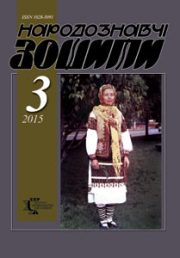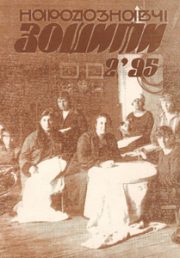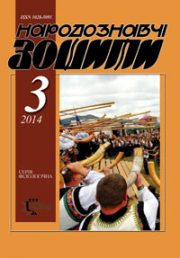The Ethnology Notebooks. 2019, 1 (145), 99—102
UDK 78(073)
DOI https://doi.org/10.15407/nz2019.01.099
PEOPLE’S ORCHESTRA AS A FACTOR OF PROFESSIONAL GROWTH OF THE FUTURE PEDAGOGUE-MUSICIAN
STUKALENKO Zoya
ORCID ID: https://orcid.org/0000-0001-5577-2655
Сandidate of Pedagogical Sciences,
Senior Lecturer of the Department of Music Art and Choreography
Central Ukrainian State Pedagogical University named after
Volodymyr Vynnychenko,
1, Shevchenko str., 25000, Kropivnitsky, Kirovograd region, Ukraine
Contacts: e-mail: stukalenkoz@gmail.com
Abstract. The article describes the profile discipline in the system of professional training of the future teacher of music — the folk orchestra. It is also emphasized that the most effective form of development students’ creative abilities is an educational orchestra collective. The main purpose of professional growth of the future teacher-musician is not only profound mastering of a combination of professional abilities and skills in the orchestra, but also management of the orchestra team and creative self-realization. The problem was studied by scientists: E. Bobrovnikova, E. Bortnik, L. Haydamak, V. Gutsal, A. Nesovibatko, I. Sklyar, G. Hotkevich, L. Cherkassky. In scientific researches of A. Gumenyuk, P. Ivanova, V. Komarenko, M. Lysenko, S. Martsinkovsky, L. Nosov, E. Bezpyatov, V. Voevodin, A. Ilchenko, V. Komarenko, I. Intelligent, E. Yutzevich covered the methodology of working with folk orchestras, features of its functioning. V. Deinega, L. Drazhnitsa, V. Gutsal, D. Pshenichny. The repertoire directions of contemporary folk-orchestral performance are presented. For example, works from the repertoire of the «Steppe dawns» orchestra of Folk Instruments by the Central Ukrainian State Pedagogical University named after Volodymyr Vynnychenko were translated and processed by the head Z.M. Stukalenko.
Keywords: folk orchestra, music, art, repertoire, student.
Received 24.12.2018
REFERENCES
Dejneha, V.M. (2002). Muzychnyj instrumentarij iak pokaznyk spetsyfiky orkestru narodnykh instrumentiv. Naukovyj visnyk NMAU im. P. I. Chajkovs’koho» (Vyp. 22, kn. 8, pp. 119—129). Kyiv [in Ukrainian].
Il’chenko, O.O. (1994). Narodne orkestrove vykonavstvo: amatorstvo i problemy khudozhnosti: monohrafiia. Kyiv [in Ukrainian].
Cherkas’kyj, L.M. (2003). Ukrains’ki narodni muzychni instrumenty. Kyiv: Tekhnika [in Ukrainian].






